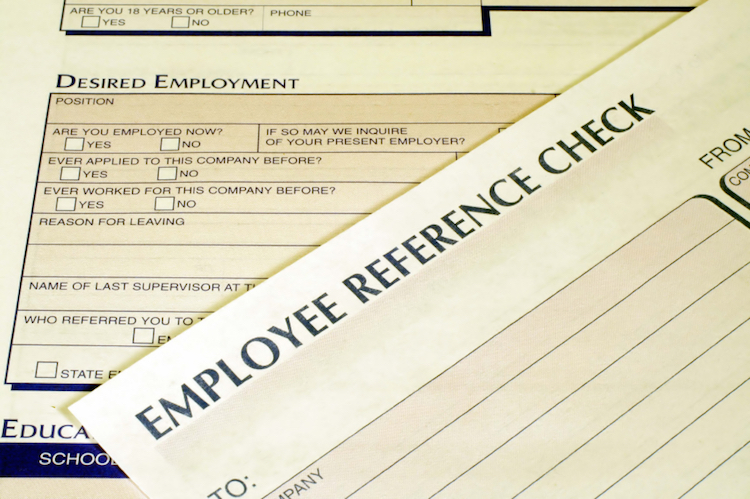The staff you hire can make or break your company. The right people in the right roles can be all that’s standing between where your company is now and where it could – and should- be.
However, as any business owner who’s ever had to hire people knows, finding the right people is easier said than done.
While it’s true that the internet provides a vast pool of talent, companies that are hiring still have their work cut out for them. Apart from crafting the right job description, you’ll also have to sift through several CV’s to come up with a shortlist. But the struggle doesn’t end there.
With more and more companies shifting to remote work, an increasing number of employees want in on the opportunities. Unfortunately, some candidates do whatever it takes to get noticed – even lying on their resumes just to stand out.
What Is Resume Fraud?

First things first. As its name suggests, resume fraud happens when a candidate or applicant intentionally provides false information on his or her resume. They usually do this to increase their chances of landing a job.
According to studies, nearly 50 percent of candidates embellish or worse, lie outright about their qualifications. It’s even more prevalent now that the competition for remote work positions is as fierce as ever.
However, this problem isn’t exclusive to remote work. Even prior to the pandemic, HR departments have encountered their own fair share when it comes to resume fraud.
That said , it’s important to acknowledge this problem so that you don’t fall prey to it. Otherwise, you could find yourself having to clean up a potentially expensive mess.
Why Should You Prevent It?

Resume fraud can be costly. Imagine hiring a sales candidate who listed down an impressive list of achievements – only to find out that s/he can’t even close a deal with a single client.
Hiring someone who can’t perform their duties effectively won’t just affect their department or immediate colleagues. The consequences can actually affect the entire business, especially if their output affects that of the other departments.
Furthermore, such dishonesty can breed distrust within the organisation, thus lowering morale. Think about it. Who would want to work with someone who can’t carry their own weight or worse, ends up forcing other people to pick up the slack?
And who would respect the authority of someone who repeatedly keeps hiring these sorts of people?
How Can You Prevent It?
Technology enables many people to easily manipulate their credentials. Apart from the tools and apps available, resume fraudsters think their relative anonymity online will allow them to get away with it.
Fortunately, technology also provides us with ways to counter check and verify an applicant’s credentials.
Here are five simple strategies for doing exactly that – and preventing resume fraud at the onset:
Backchannel References

Most, if not all, candidates list their closest colleagues and bosses as character references. Hence, you’re likely to hear only positive feedback if you go down this route.
However, if you’re skeptical about an applicant’s resume, you can try to reach out to their work colleagues who aren’t listed. That way, you have a better chance of seeing the complete picture.
And thanks to social media and Google, finding people who work in the same organisation isn’t that difficult anymore.
Visit LinkedIn Profiles

Resumes are easy to fabricate. Candidates can add whatever information they want, just to make it appear that they have everything you’re looking for. So, if you want to confirm an applicant’s CV, try cross-checking their LinkedIn profiles.
You see, LinkedIn profiles are semi-public. Thus, it’s not as easy to lie about your credentials on this platform. For one, your peers can easily see and point out any embellishments or outright lies on your profile.
If you have the time, you can also check an applicant’s social media accounts. Check if their employment history there matches the one on their CV. Better yet, check if they’re tagged in photos involving people or activities in companies they claim to have been employed by.
Measure Applicant Skills

Business concepts, study and skill up
If the right skills are your number one criteria, make sure that you do a skill test prior to hiring.
For example, it’s not enough for a content writer applicant to list down all the articles they wrote for a previous client. Anyone can do that.
Instead, why not have the applicant write a new article on a topic of your choosing? This way, you can gauge their skills from the very beginning and, more importantly, quickly determine if they can deliver.
Just make sure you offer proper compensation for the applicant’s skill test, though.
Inform Applicants That You Will Verify Their Qualifications

Some candidates don’t believe companies actually follow through with background checks or verifications. Just to be on the safe side, inform them that you will conduct due diligence as part of the hiring process. Have them check a box or sign an acknowledgement form so that you have proof of their consent.
Doing so will already scare off many applicants who lied on their resumes, helping you filter out candidates significantly and as early as possible.
Employ Verification Services

If you don’t have enough time to verify things yourself, you can always tap verification services to do it for you. Aside from the applicant’s work history, they can also confirm an applicant’s academic background.
Note that completing the verification process can take days or weeks, depending on the resume’s complexity.
Resume fraud isn’t just unprofessional and dishonest. It also prevents truly qualified applicants from having a shot at getting jobs they deserve.
Thus, identifying and weeding out fraudulent applications will get you one step closer to the right people for the right roles.
Fortunately, Remote Staff has been providing AU and SMEs and entrepreneurs like you for the last 14 years and counting with skilled remote workers from the Philippines. We specialise in scouting and vetting top remote talents – all so you won’t have to.
Call us today or schedule a call back and let’s get started.
Serena has been working remotely and writing content for the better part of the last decade. To date, she's written for Pepper.ph and Mabuhay Magazine, among others, and has churned out more than a thousand articles on everything from The Basics of Stock Market Investing to How to Make Milk Tea-Flavored Taho at home. Hermits, aspiring hermits, and non-hermits with interesting project propositions may email her at serena.estrella10@gmail.com.





















